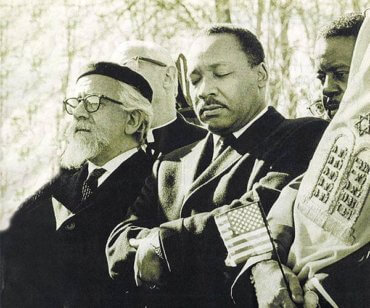
When Did The Jewish Community Stop Owning Slaves?
Dear Jew in the City-
When did the Jewish community stop owning slaves? Is this something that petered out on its own or was there a point in history that it officially ended? Did the slave owners who owned slaves in the US follow halacha?
Thanks,
E.B.
Dear E.B.-
That’s a very interesting question. Let’s first examine the Torah’s concepts of slavery. (Yes, concepts – plural; there are two types of slavery discussed in the Torah.)
The first kind of slavery – and really, I think “servitude” would be a more accurate translation – is that of the eved Ivri (Hebrew servant), discussed in parshas Mishpatim (Exodus chapter 21). A Jewish servant either indentured himself, or he was indentured by the courts, in order to work off a debt. The term of service was six years or until the Jubilee year, whichever came first. Being an eved Ivri ensured an impoverished person that he would have room, board and job security. It was not permitted to give him degrading work and, if there was only one pillow, the master had to give it to his servant. The position was such that some servants chose to stay on with their employers even after their terms of service had expired. The obligations one has to a servant are so extensive that the Talmud (Kiddushin 20a) says that “one who acquires a slave actually acquires a master for himself.”
Here, however, we are more concerned with the eved Knaani (Canaanite servant), as described in Leviticus chapter 25. Canaanite servants were partial converts to Judaism; even the men kept only the mitzvos observed by Jewish women, i.e., they were not obligated in most positive, time-bound mitzvos. Upon being freed, a servant became a full convert like any other.
A master had one year to persuade a Canaanite servant to undergo circumcision and ritual immersion in a mikvah in order to accept this role. If the servant didn’t consent, he must be sold. If he did consent, he became a permanent member of the master’s household. Unlike a Hebrew servant, a Canaanite servant doesn’t go free after six years or at the Jubilee; he potentially serves for the rest of his life.
There are, however, a number of reasons for which a Canaanite servant might be released. First and foremost among these is if his master struck him and cost him an organ or a limb, such as an eye or a tooth. This is in great contradistinction to the practice of other nations, in which maiming slaves was a standard practice and at a master’s discretion. Herodotus describes the Scythians blinding their slaves, Seneca and Cicero describe the hands and tongues of Roman slaves being amputated (respectively), and cutting off a slave’s ear was a common punishment prescribed by the Code of Hammurabi. (And let us not forget eunuchs, who were castrated slaves.) We see such cruelty displayed by other nations throughout Tanach, such as when Samson was blinded by the Philistines in Judges chapter 16. (See also the words and deeds of Adoni Bezek in Judges 1, of Nachash in I Samuel 11, of Nebuchadnezzar in I Kings 28 and, in the Talmud, of Herod on Baba Basra 4a.)
This difference between servitude to a Jewish master and to an idolatrous master is significant, but maiming was not the only reason a Canaanite servant might be freed. Remember that a freed Canaanite servant is a full convert in all regards. Accordingly, a slave might be freed – and in at least one case, actually was freed – in order to complete a minyan (Talmud Brachos 47b). Similarly, since Canaanite servants were only obligated in the mitzvos in which women are obligated, if a Canaanite servant’s master caused him to perform a mitzvah that is only performed by men, such as putting on tefillin or calling him for an aliyah, then that servant is considered freed. (“A tallis! Master has given Dobby a tallis! Dobby is free!”)
The Torah has other progressive laws regarding non-Jewish servants. For example, if a slave from another land runs away to Israel, he may not be returned to his master; this is the case even if the master is Jewish (Deuteronomy 23:16). Similarly, we see a special prohibition against verbally oppressing or otherwise taking advantage of a fugitive slave (ibid., v. 17).
In Hilchos Avadim 9:8, the Rambam points out that, while the prohibition against overworking a servant was only stated regarding a Hebrew servant, the appropriate course of action is not to overwork a Canaanite servant either. He provides a number of reasons for this, including the general obligations to emulate God and to be compassionate to everyone. The Rambam specifically notes that a servant should be well-fed with the same food that the master eats, and that one may not berate or beat a servant. After all, the Torah only requires that a servant provide labor; nothing obligates him to put up with his master’s abuse! (Rambam cites numerous Biblical verses and Talmudic sources in support of these ideas.)
So if the Torah was so progressive compared to other nations on the subject of slavery, the obvious question is why it didn’t prohibit servitude altogether. This has been the subject of no small discussion, just the surface of which we’ll scratch here.
My go-to for such things is the Rambam. In Moreh Nevuchim (Guide for the Perplexed) III, 32, the Rambam explains that the Torah was given in a world much more primitive than our own. Had the Torah commanded immediate spiritual perfection, people would not have been able to comply. It’s not human nature to go from zero to sixty; we have to take things one step at a time. Accordingly, what the Torah does is point us in the right direction and give us a little push.
The example Rambam gives is the Temple service. The Jews who left Egypt were the product of an idolatrous culture. The only way they knew to relate to a deity was through temples, priests, offerings, and the like. God therefore didn’t command that such service be spontaneously abandoned. Rather, He transitioned the people by commanding that a Temple be built to Him rather than to false gods, that sacrifices be offered only to Him, and that Aaron’s descendants be appointed to serve as priests. Through this, idolatry was able to be abandoned in favor of the service of God. But God also limited Temple service – there was only one Temple, in a specific location. A person couldn’t visit it whenever he wanted; there were a dozen forms of ritual impurity that would preclude one from doing so. One couldn’t train to become a Temple priest – it was limited to Aaron’s descendants. All this is different from prayer, which is our primary mode of service and which can be offered by any person in any place.
Just as the Temple served as kind of a “halfway house” to transition the Jews from idolatrous service to pure monotheism, the same can be said of other areas of halacha in which the Torah didn’t go “all in,” opting instead to point society in the right direction and making them take the first step. Polygamy, for example, was formerly permitted under Jewish law (though discouraged and relatively rare). It is now prohibited and no religious authorities are calling for its return. And, germane to our topic, the same can be said of slavery and indentured servitude.
There are other approaches to this question. Noting that slavery was a worldwide institution, Rabbi Pinchas Wolf (Germany, 1875-1968), suggests in Diyukim al HaTorah that prohibiting it altogether would have been seen as a uniquely Jewish quirk, like keeping Shabbos or not eating shellfish. By permitting slavery to continue but setting tighter parameters on the master/slave relationship, the Torah raised the bar. This challenged the world to do better.
The laws of Hebrew servitude, like certain other areas of law, only applied when the Jubilee year was in effect, which is when all the Tribes resided in Israel. Accordingly, this practice ceased after the ten Tribes were exiled at the end of the first Temple period. Jews in exile were permitted by halacha to own slaves in accordance with the laws of the lands in which they lived. They were, however, obligated to treat them better than the laws of the lands might have allowed, as per Hilchos Avadim 9:8, cited above.
There were Jewish slaveholders in America, though claims that Jews controlled the slave trade is an anti-Semitic canard, the same as claims that that Jews control the media, the banks or the government. In reality, Jews only accounted for about 1% of slave holders in the South. In 1830, some 11,000 Southerners owned 50 slaves or more; of these, only four were Jewish. (Whether Jewish slave holders in the US followed halacha or not, I cannot say. I also don’t know if they kept Shabbos or ate kosher.)
EDITOR’S NOTE: Acquiring a slave through kidnapping was prohibited. Kidnapping and selling a person is specifically addressed in Exodus 21:16: “One who kidnaps a person and sells him, or if he is found in his hand, he shall surely be put to death.” Inasmuch as the trans-Atlantic slave trade came about due to kidnapping, it would have been prohibited by Jewish law.
My favorite quote on slavery comes from Neil Gaiman, in Sandman #13. In it, the titular character tells the immortal Robert “Hob” Gadling, “It is a poor thing to enslave another.” (This may seem obvious, and something of an understatement, but the scene takes place in 1789, so it needed to be said.) I think it’s fair to say that the Torah actually agrees with this assessment. We see, for example, God’s wrath kindled in Jeremiah chapter 34, when the people reneged on a promise to free their indentured servants.
So, if it’s a “poor thing to enslave another,” why does the Torah permit it at all? It’s because people have a yetzer hara (evil inclination). As Rashi explains in another context (on Deuteronomy 21:11), because of human nature, the Torah sometimes has to set parameters on bad behavior rather than prohibiting it outright only to have that prohibition go unheeded. We’re not fans of slavery (to say the least), and no one is calling for its return, but it was something that mankind needed to be weaned off of. The call for an abrupt end, counter to the universal practice of the time, would have been ignored. Even if it had been embraced by the Jews, such a drastic divergence from the norm would have failed to raise the bar for the rest of the world.
Sincerely,
Rabbi Jack Abramowitz
Educational Correspondent
Follow Ask Rabbi Jack on YouTube
If you found this content meaningful and want to help further our mission through our Keter, Makom, and Tikun branches, please consider becoming a Change Maker today.








2 comments
Sort by
Thanks for this overview of the treatment of slaves in Jewish law and practice! You failed to mention the law that we recall every year when we recite the tale of the Ten Martyrs. The Roman governor asked, “What is the law regarding one who kidnaps a person and sells them as a slave?” The sages replied, “They must be put to death.” Commentaries explain that this is the meaning of “Thou shalt not steal” in the Ten Commandments, because the other crimes listed with it are capital offenses. This would have prohibited Jews from participating in the Atlantic slave trade, which sourced slaves mostly from raids conducted to capture people for sale on the West coast of Africa.
It is quite obvious what the bible’s perspective is on slavery. Exodus starts with a quick retelling of the story of Joseph and how the Hebrews came to be slaves in Egypt. It speaks of their oppression and harsh treatment which lasted 400 years, and when Pharoah began to fear their strength, he commands the midwives to kill the male children to reduce the size and strength of the Hebrew population, but because they feared G0d, they did not. G0d then deals well with them.
Then Pharoah has the male children thrown into the Nile and drowned. This leads to Moses being put into an ark and floated down the Nile to the sister of Pharoah who takes him as a replacement for her stillborn child. When Moses is grown, he sees a taskmaster smiting a Hebrew, Moses kills him. The deed is found out, and so Moses flees to Midian.
Now, the is not as direct as thou shalt not, but it certainly paints a picture that slavery is wrong. It further shows that brutality is also wrong, and that killing in defense of those being brutalized is not just acceptable, but moral.
“And it came to pass in the course of those many days that the king of Egypt died; and the children of Israel sighed by reason of the bondage, and they cried, and their cry came up unto God by reason of the bondage.” (Exodus 2:23) The bible does not stop there. It goes on to demand the freedom of the Hebrew slaves. How is that not a condemnation of slavery? When Moses experiences G0d in the burning bush he is told, “And the LORD said: ‘I have surely seen the affliction of My people that are in Egypt, and have heard their cry by reason of their taskmasters; for I know their pains; And now, behold, the cry of the children of Israel is come unto Me; moreover I have seen the oppression wherewith the Egyptians oppress them.” (Exodus 4:7, 9)
Next, we have the signs that G0d give Moses so that the Israelites will believe that he has seen G0d. These signs tell the the story of the treatment of the Israelites by the Egyptians. First is turning the staff into a snake. This showed how the Egyptians who welcomed them when Joseph saved them, came to see them as vermin to be feared and crushed. The second sign was that when he placed his hand next to his bosom that It became leprous and white as snow. This was to signify the command to dash that heads of the male children so that when the mothers placed them to their bosom to feed them, it would be dead flesh and not a living child. The final sign was taking water from the Nile, and pouring it on the dry land and having it turn to blood. This showed that G0d saw even the crime of the drowning of the male children. The Nile covered the crime, and made it unseen, but the blood of it was seen by G0d, and the Nile still cries for the blood of the Hebrew children that it hid. And so it came to pass that when Moses returned, and gathered the leaders and showed them the signs, “the people believed; and when they heard that the LORD had remembered the children of Israel, and that He had seen their affliction, then they bowed their heads and worshipped.” (Exodus 4:31)
Now, the most well known of the story is how G0d smote the Egyptians to force Pharoah to let the Israelites go. Surely this is a condemnation of slavery. It was seen as such a condemnation that when English missionaries sought to convert African slaves in Britain’s Caribbean colonies, in the 19th century, they used “Slave Bibles” with conveniently removed portions of the canonical text. They thought these sections, such as Exodus, the Book of Psalms, and the Book of Revelation, could instill in slaves a dangerous hope for freedom and dreams of equality.
The next condemnation is .”Thou shalt not steal. (Exodus 20:12) This was specifically referring to the theft of a human being for the purposes of selling them into bondage. This one command outlawed the entirety of the African slave trade, as all slaves where kidnapped by Africa tribes from the interior, and sold into slavery at the coast. You do not get a more direct condemnation than this.
But before I go, I would like to address one final fallacy that in spite of all of the evidence that the bible condemns slavery, that the rules on slavery shows that it actually condoned it. The rules on slavery speak of two kinds of slaves eved Ivri, and even K’naani (simply referred to as ebed in the authors text). First are eved Ivri who are the slaves who are Hebrews. These are those given to servitude to pay a debt, or who gives himself over to slavery out of a need from poverty. These must be released on the next Jubilee year(every 7 years) regardless of when they entered into the arrangement.
The second are the eved K’naani (Canaanite slaves, but really any other slaves) These slaves where to be seen as partial converts, and the master had a year to convince them to fully convert, and be released. These slaves could not be harmed. That would result in the immediate release. There were rules set to treat both the Ivri and K’naani morally. But the most important fact is that 3 months after their release when the Hebrews were given these rules for slavery, they owned no slaves. These were not given to them because they had slaves. They were given to them because G0d knew something about human behavior. Slaves and slavery were everywhere in the ancient world, but the rules that the Hebrews had stood in stark comparison to those of their pagan neighbors.